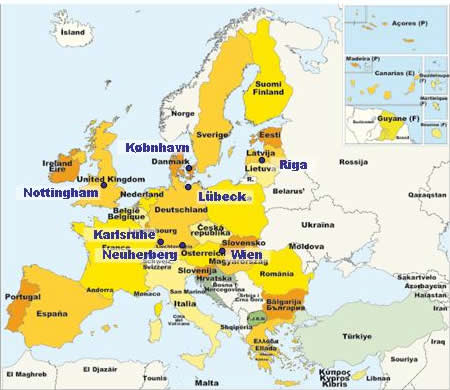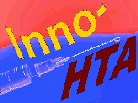Innovations in healthcare are discussed controversially, with high uncertainty about costs and outcomes. In part because of methodological constraints, health technology assessment (HTA) to date mainly restricts itself to treatments that are already marketed. Regarding emerging healthcare technologies, the assessment criteria commonly used do not support the many decisions that need to be made in earlier phases of the development process by the different stakeholder groups (e.g. researchers, industry, healthcare professionals, patients, health insurers, policy-makers). Therefore, advances in treatments or technologies are often not sufficiently utilized.
In Inno-HTA, indicators for the early evaluation of healthcare innovations have been developed in order to support the stakeholders’ decision-making with best-available evidence and thus facilitate ‘good’ innovations’ way into application. Based on innovation research and existing HTA methods, and supported by the involved HTA community, the project attempted to develop criteria for a comprehensive early assessment of innovative healthcare technologies in order to identify the most promising and most useful innovations as early as possible. This process could not only be based on “hard evidence”, but also exploited the expertise within the consortium and the HTA community by expert workshops and an online survey. In the form of a checklist, Inno-HTA makes suggestions which indicators for the emerging technology's characteristics strengthen the evidence-base for decision-making from the various stakeholder groups' perspectives.
The final list of 62 indicators covers the areas of
- Patient-related outcomes,
- Broader health impacts,
- Safety,
- Economic evaluation (Costs, Health economic evaluation, Economic evaluation – Producer perspective, Economic evaluation – Society perspective),
- Societal aspects,
- Ethical aspects,
- Legal aspects,
- Health problem and current use of technology,
- Organisational aspects,
- Knowledge/education,
- Description and technical characteristics of technology (Innovativeness, Status of development) and
- Research activities.
Duration: 01. Jan. 2007 – 31. Dec. 2008
Funding: European Union (FP6)![]()
Partners:
- Scientific and administrative coordinator: Fraunhofer Institute Systems and Innovation Research, Dept. Emerging Technologies, Karlsruhe, Germany – Fraunhofer (Dr. Bernhard Buehrlen)
- University of Luebeck, Institute for Social Medicine, Luebeck, Germany – UL-IfSM • Institute for the Study of Genetics, Biorisks and Society, University of Nottingham, Nottingham, UK – UNOTT
- Ludwig Boltzmann Institute for Health Technology Assessment, Vienna, Austria – LBI@HTA
- Danish Centre for Evaluation and HTA, National Board of Health, Copenhagen, Denmark – DACEHTA
- Health Statistics and Medical Technologies State Agency, Riga, Latvia – VSMTA
- GSF National Research Center for Environment and Health - Institute of Health Economics and Health Care Management, Neuherberg, Germany – GSF

Coordination: Bernhard Bührlen at Fraunhofer ISI


